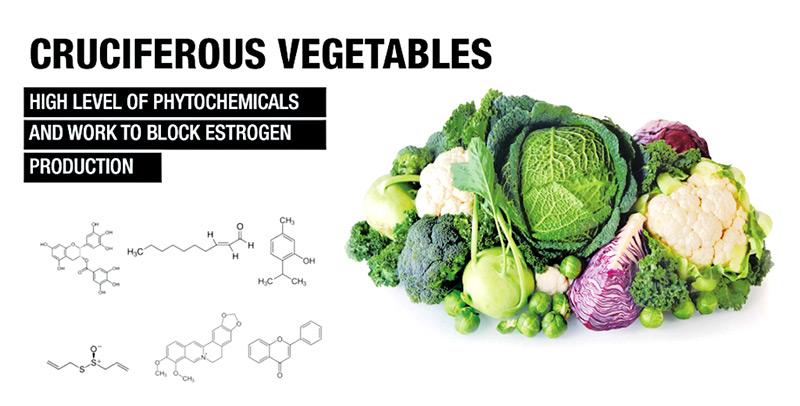
Cruciferous vegetables, such as kale, broccoli, cabbage, and cauliflower, have long been considered a valuable part of a healthy diet. These vegetables are not only packed with essential nutrients but also contain compounds that possess various health-promoting properties. One of the most intriguing aspects of cruciferous vegetables is their ability to influence epigenetic mechanisms in the body.
Epigenetics refers to the study of modifications in gene expression patterns that do not involve changes in the underlying DNA sequence. It involves alterations in gene activity that can be influenced by external factors, including diet and lifestyle choices. The effects of cruciferous vegetables on epigenetics have attracted considerable attention in recent years, as they have the potential to modulate gene expression and impact overall health.
 One of the key players in cruciferous vegetables that contributes to their health benefits and epigenetic effects is a group of compounds known as glucosinolates. When we consume cruciferous vegetables, the glucosinolates are broken down into biologically active compounds, such as isothiocyanates, indoles, and sulforaphane. These compounds, particularly sulforaphane, have been shown to exert potent biological effects by influencing epigenetic modifications.
One of the key players in cruciferous vegetables that contributes to their health benefits and epigenetic effects is a group of compounds known as glucosinolates. When we consume cruciferous vegetables, the glucosinolates are broken down into biologically active compounds, such as isothiocyanates, indoles, and sulforaphane. These compounds, particularly sulforaphane, have been shown to exert potent biological effects by influencing epigenetic modifications.
Numerous studies have demonstrated that sulforaphane can help protect against chronic diseases, including cancer, by modulating various epigenetic mechanisms. For example, sulforaphane has been found to inhibit DNA methylation, a process that can silence gene expression. By preventing DNA methylation, sulforaphane may help reactivate tumor suppressor genes and block the growth and spread of cancer cells.
Cruciferous vegetables also contain compounds that can affect histone modifications, another important epigenetic mechanism. Histones are proteins around which DNA is wrapped, and their modifications can influence gene expression.
Studies have shown that several compounds in cruciferous vegetables, including indole-3-carbinol, can alter histone modifications, leading to changes in gene activity. This may have implications for cancer prevention, as aberrant histone modifications have been linked to various types of cancer.
Beyond cancer, cruciferous vegetables and their epigenetic effects have also been investigated in other areas of health. For instance, certain compounds found in these vegetables have been shown to modulate the activity of enzymes involved in inflammation and oxidative stress, both of which play a role in the development of chronic diseases, including cardiovascular disease and neurodegenerative conditions.
The epigenetic effects of cruciferous vegetables have been studied in the context of aging. Aging is associated with changes in gene expression, and these changes can be influenced by environmental factors, including diet. Research has shown that certain compounds in cruciferous vegetables can affect epigenetic modifications associated with aging, potentially slowing down the aging process and promoting healthy aging.
It is important to note that while cruciferous vegetables show promising epigenetic effects, more research is needed to fully understand the mechanisms involved and their implications for human health. Additionally, these effects may vary depending on individual genetic and epigenetic factors, as well as the specific types and preparations of cruciferous vegetables consumed.
In conclusion, cruciferous vegetables have gained recognition for their numerous health benefits, and their impact on epigenetic mechanisms adds another layer of complexity to their potential health-promoting effects. By influencing DNA methylation, histone modifications, and other epigenetic processes, the compounds present in cruciferous vegetables have the potential to modulate gene expression and protect against chronic diseases, including cancer, cardiovascular disease, and neurodegenerative conditions. As research progresses, a better understanding of the epigenetic effects of cruciferous vegetables may uncover new ways to harness their potential for improving human health.
